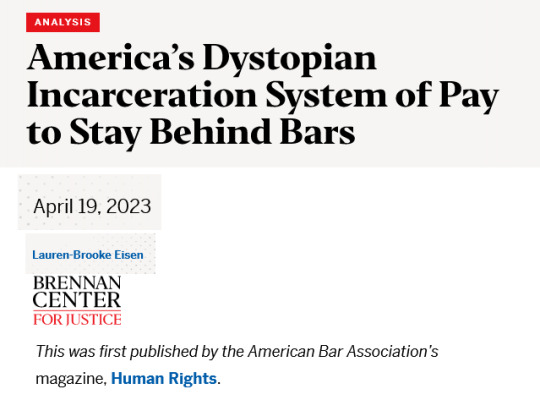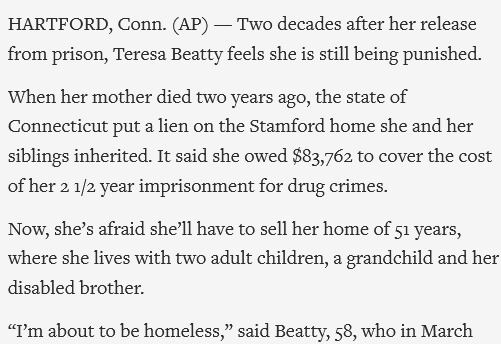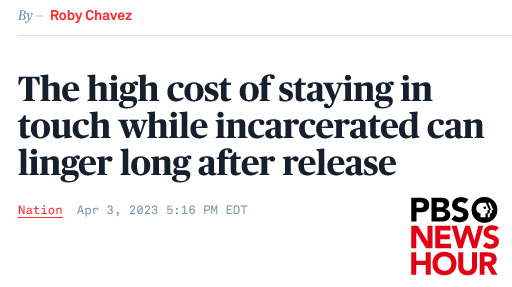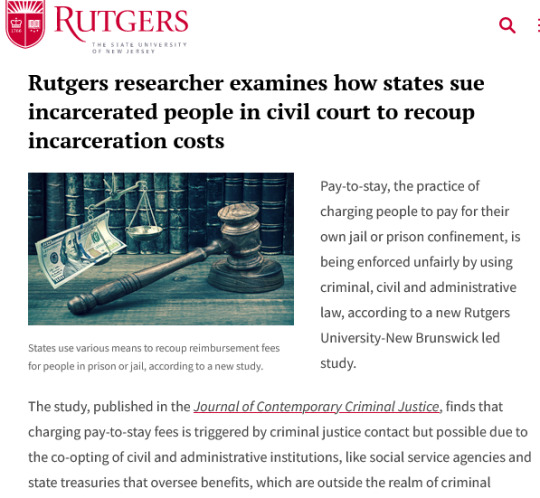#southern connecticut state university
Explore tagged Tumblr posts
Text

Via Southern Connecticut State University's Instagram Story (May 13th, 2024)
#darren criss#southern connecticut state university#a concert for long wharf theatre#instagram#may 2024
32 notes
·
View notes
Text

Our chairs are Officer Jules approved!
2 notes
·
View notes
Video
youtube
Northeast 10 Track & Field Championship SCSU New Haven Connecticut #spor...
#youtube#sports#sports photography#college sports#mirrorless#nikon z9#track and field#sports photographer#new haven#connecticut#southern connecticut state university#SCSU#bentley university#Franklin Pierce#university of new haven#saint anselm#the college of saint rose#southern new hampshire university#z9
0 notes
Text

DogNews@DogTreatSmart
K9 Comfort Dog Celebrates Birthday at SCSU With Help From Friends. Read more: bit.ly/3J6xWXd
#dogsarelove#dogoftheday#dognews#allthingsdogs#dogtreatsmart#Connecticut#Southern Connecticut State University#mentalhealthmatters#happy birthday
0 notes
Text
To protesting students:
SEIZE YOUR CENTURY
Push back against dark times ✊🏼
👏🏼👏🏼👏🏼
#freespeech #righttoprotest #endgenocide
#columbia university#nyu#tufts#massachusetts institute of technology#emerson college#yale university#uc berkeley#arizona state university#cal poly humboldt#ucla#stanford university#university of southern california#university of connecticut#florida state university#university of florida#georgia institute of technology#kennesaw state university#loyola chicago#northwestern university#harvard university#university of maryland#purdue university#indiana university#university of chicago#louisiana state university#university of new hampshire#cornell university#boston university#palestine#palestinians
2 notes
·
View notes
Text
LEEAH JOO
Korean-American painter Leeah Joo’s work is inspired by the enigmatic and hidden. In her illusionist paintings, she teases our predisposition to probe and uncover. Intriguing parcels in her Pojagi series are enveloped by a lavish, traditional Korean wrapping cloth and beckon to be unpacked. The richly detailed paintings of lacey drapery in her Parrhasius series present an open-ended narrative, inviting us to question what lies behind the curtain. Joo studied painting and art history at Indiana University in Bloomington and received her MFA in painting from the Yale School of Art, Her paintings have been exhibited widely in the U.S. and South Korea. She is the recipient of notable awards from the Pollock-Krasner Foundation, George Sugarman Foundation, Connecticut Commission on Arts and the Puffin Foundation. Currently, Leeah Joo lives and paints in Middlebury, Connecticut and teaches at Southern CT State University and Paier College.
74K notes
·
View notes
Text
Good question:

In the United States, many jails and prisons can and will charge you money for every single night that you spend imprisoned, for the entire duration of your incarceration, as if you were being billed for staying at a hotel. Even if you are incarcerated for years. Adding up to tens of thousands of dollars. What happens when you’re released?
In response to this:



---
So.
You’re getting charged, like, ten dollars every time you even submit a request form to possibly be seen by a doctor or dentist.
You’re getting charged maybe five dollars for ten minutes on the phone.
Any time a friend or family tries to send you like five dollars so that you can buy some toothpaste or lotion, or maybe a snack from the commissary since you’re diabetic and the “meals” have left you malnourished, maybe half of that money gets taken as a “service fee” by the corporate contractor that the prison uses to manage your pre-paid debit card. So you’re already losing money every day just by being there.
What happens if you can’t pay?
In some places, after serving just a couple of years for drugs charges, almost 20 years after being released, the state can still hunt you down for over $80,000 that you “owe” as if it were a per-night room-and-board accommodations charge, like this recent highly-publicized case in Connecticut:


Excerpt:
Two decades after her release from prison, [TB] feels she is still being punished. When her mother died two years ago, the state of Connecticut put a lien on the Stamford home she and her siblings inherited. It said she owed $83,762 to cover the cost of her 2 1/2 year imprisonment for drug crimes. [...] “I’m about to be homeless,” said [TB], 58, who in March [2022] became the lead plaintiff in a lawsuit challenging the state law that charges prisoners $249 a day for the cost of their incarceration. [...] All but two states have so-called “pay-to-stay” laws that make prisoners pay for their time behind bars [...]. Critics say it’s an unfair second penalty that hinders rehabilitation by putting former inmates in debt for life. Efforts have been underway in some places to scale back or eliminate such policies. Two states — Illinois and New Hampshire — have repealed their laws since 2019. [...] Pay-to-stay laws were put into place in many areas during the tough-on-crime era of the 1980s and ’90s, said Brittany Friedman, an assistant professor of sociology at University of Southern California who is leading a study of the practice. [...] Connecticut used to collect prison debt by attaching an automatic lien to every inmate, claiming half of any financial windfall they might receive for up to 20 years after they are released from prison [...].
Text by: Pat Eaton-Robb. “At $249 per day, prison stays leave ex-inmates deep in debt.” AP News / The Associated Press. 27 August 2022.
---

---
Look at this:
To help her son, Cindy started depositing between $50 to $100 a week into Matthew’s account, money he could use to buy food from the prison commissary, such as packaged ramen noodles, cookies, or peanut butter and jelly to make sandwiches. Cindy said sending that money wasn’t necessarily an expense she could afford. “No one can,” she said. So far in the past month, she estimates she sent Matthew close to $300. But in reality, he only received half of that amount. The balance goes straight to the prison to pay off the $1,000 in “rent” that the prison charged Matthew for his prior incarceration. [...] A PA Post examination of six county budgets (Crawford, Dauphin, Lebanon, Lehigh, Venango and Indiana) showed that those counties’ prisons have collected more than $15 million from inmates — almost half is for daily room and board fees that are meant to cover at least a portion of the costs with housing and food. Prisoners who don’t work are still expected to pay. If they don’t, their bills are sent to collections agencies, which can report the debts to credit bureaus. [...] Between 2014 and 2017, the Indiana County Prison — which has an average inmate population of 87 people — collected nearly $3 million from its prisoners. In the past five years, Lebanon’s jail collected just over $2 million in housing and processing fees.
Text by: Joseph Darius Jaafari. “Paying rent to your jailers: Inmates are billed millions of dollars for their stays in Pa. prisons.” WHYY (PBS). 10 December 2019. Originally published at PA Post.
---

Pay-to-stay, the practice of charging people to pay for their own jail or prison confinement, is being enforced unfairly by using criminal, civil and administrative law, according to a new Rutgers University-New Brunswick led study. The study [...] finds that charging pay-to-stay fees is triggered by criminal justice contact but possible due to the co-opting of civil and administrative institutions, like social service agencies and state treasuries that oversee benefits, which are outside the realm of criminal justice. “A person can be charged $20 to $80 a day for their incarceration,” said author Brittany Friedman, an assistant professor of sociology and a faculty affiliate of Rutgers' criminal justice program. “That per diem rate can lead to hundreds of thousands of dollars in fees when a person gets out of prison. To recoup fees, states use civil means such as lawsuits and wage garnishment against currently and formerly incarcerated people, and regularly use administrative means such as seizing employment pensions, tax refunds and public benefits to satisfy the debt.” [...] Civil penalties are enacted on family members if the defendant cannot pay and in states such as Florida, Nevada and Idaho can occur even after the original defendant is deceased. [...]
Text by: Megan Schumann. “States Unfairly Burdening Incarcerated People With “Pay-to-Stay” Fees.” Rutgers press release. 20 November 2020.
---
So, to pay for your own imprisonment, states can:
-- hunt you down for decades (track you down 20 years later, charge you tens of thousands of dollars, and take your house away)
-- put a lien on your vehicle, house
-- garnish your paycheck/wages
-- seize your tax refund
-- send collections agencies after you
-- take your public assistance benefits
-- sue you in civil court
-- take money from your family even after you’re dead
9K notes
·
View notes
Text

Canadian native🇨🇦and Southern Connecticut State University gymnast Alexa Melanson: Another lady with a hot body🔥😍.
477 notes
·
View notes
Text
College Shitlist (boycott these colleges)
This is the updating list of colleges where pro-palestine protests are present that have brutalized/arrested/punished their students for protesting the ongoing palestinian genocide.
REMEMBER: DO NOT GIVE YOUR MONEY TO THESE COLLEGES. PROTESTS ON THESE CAMPUSES ARE IMPORTANT, BUT KEEPING YOUR INTELLIGENCE AND MONEY AWAY FROM THESE ABHORRENT INSTITUTIONS DIMINISHES THEIR POWER. THEIR ONLY POWER COMES FROM THEIR STUDENTS AND THEIR MONEY. YOU HAVE THE POWER TO TAKE THEIR PRESTIGE AWAY.
In No Particular Order:
Princeton University
Massachusetts Institute of Technology
University of California - Berkeley
Stanford University
Virginia Tech
University of Michigan - Ann Arbor
University of Washington
University of Minnesota - Twin Cities
University of Wisconsin - Madison
Harvard University
Yale University
University of California - Los Angeles
Cornell University
University of Pittsburgh
University of Chicago
University of Southern California
University of California - San Diego
Tufts University
Northeastern University
Stony Brook University
University of Connecticut
University of California - Merced
University of Massachusetts - Amherst
University of Iowa
University of Arizona
Arizona State University
University of California - Irvine
George Washington University
DePaul University
University of Pennsylvania
Pomona College
University of Texas - Dallas
The New School
University of Houston
University of Rochester
University of New Mexico
Duke University
New York University
University of North Carolina - Chapel Hill
Barnards College
University of Vanderbilt
Rutgers University - New Brunswick
Columbia University
Portland State University
University of Oregon
California Polytechnic Institute Humboldt
California Polytechnic University - San Luis Obispo
Northern Arizona University
University of Utah
University of Kansas
University of Illinois - Urbana Champaign
Washington University
New Mexico State University
University of Texas - Austin
Tulane University
University of South Florida
University of North Florida
University of Florida
Emory University
University of Georgia
Mercer University
Notre Dame University
Case Western Reserve University
The Ohio State University
Virginian Commonwealth University
University of Virginia
University of Buffalo
State University of New York - Purchase
State University of New York - New Paltz
Brown University
Brandeis University
Dartmouth College
University of New Hampshire
Emerson College
CUNY City College of New York
International List:
University of Amsterdam
University of Alberta
University of Queensland
University of Sydney
University of Melbourne
Australian National University
University of New South Wales
University of Calgary
University of Oxford
Feel free to share this list, send me additional colleges to add (WITH SOURCES), and/or request more information on a particular college
#palestine#gaza#free palestine#boycott israel#free gaza#princeton#yale#harvard#cornell#brown#dartmouth#mit#nyu#gaza genocide#notre dame#stanford#boycott#divest from israel#Oxford#Amsterdam#sydney#Palestine protests
48 notes
·
View notes
Text

Date: June 24 - 12:00 pm ET
Registration Link: https://us02web.zoom.us/webinar/register/WN_QAyx1OSLQ7S-DhvB9tkOBA#/registration
This webinar is intended for LGBTQ supporters of Israel and their loved ones and will address how discourse can impact an already marginalized community. There will be time for questions at the conclusion of the program, and attendees are encouraged to use the Q and A feature during the webinar.
Corinne E. Blackmer, PhD is professor of English and Judaic Studies and Director of Judaic Studies at Southern Connecticut State University, and an affiliate professor at University of Haifa. She has written numerous articles on a wide array of subjects, from Jewish ethics and pink washing to Jewish women’s graphic novels and modernism. She recently completed a book which won the National Jewish Book Award, “Queering Anti-Zionism: LGBTQ Intellectuals, Academic Freedom, and Israel/Palestine Campus Activism” and also edited (with Andrew Pessin) a collection of essays, “Poisoning the Wells: Antisemitism in Contemporary America.” She is currently completing a memoir about her maternal grandmother, who was a woman’s reproductive health advocate. The title is, “My Grandmother as an Abortionist before Roe.”
Joshua Simmons, PsyD is a Jungian psychoanalyst, licensed psychologist, and clinical supervisor. His past clinical research focuses on cultural trauma and the intergenerational transmission of trauma and resilience among ethnic minorities. He maintains a private practice in San Francisco, CA.
Support A Wider Bridge

#jumblr#october 7#israel#antisemitism#frumblr#terrorism#usa diaspora#am yisrael chai#Kol Yisrael achim#lgbt#lgbtJews#LGBT Israelis#LGBT Israel#a wider bridge
40 notes
·
View notes
Text
In October of 2023, when Grace Carter was an 18-year-old freshman at North Carolina State University, she received a message on Instagram from the business account of the conservative dating app The Right Stuff. It was reaching out to ask if she wanted some merchandise.
Carter didn’t know much about the app but was interested in a free hoodie. And as it turned out, she wasn’t just corresponding with a brand manager but with John McEntee—the app’s cofounder, a former official in the Donald Trump administration, and at one point, a senior adviser to Project 2025.
In messages sent to Carter and to another young woman and reviewed by WIRED, McEntee pushed conversations in directions that made them extremely uncomfortable and invited both, one repeatedly, to visit him in Los Angeles.
Neither McEntee nor The Right Stuff responded to repeated requests for comment.
McEntee, 34, is a former quarterback at the University of Connecticut who served as a personal aide to Trump at the beginning of his presidency. He was reportedly fired in 2018 after his security clearance was denied—according to The Atlantic and the The Wall Street Journal, he had deposited large sums of money from online gambling winnings and had mishandled his taxes; he would later say under oath in a deposition related to January 6 that he resigned—but in February 2020 returned to the White House, this time as director of the White House Presidential Personnel Office. Reflecting his stature in Trump’s inner circle, The Atlantic’s profile refers to him as the unofficial “deputy president” and, in the headline, as “the man who made January 6 possible.”
In May 2023, the Heritage Foundation, which did not respond to a request for comment, announced that McEntee would be joining the Project 2025 team as a senior adviser. Project 2025 is a roadmap for a second Trump administration that would radically roll back the rights of women and LGBTQIA+ people and unwind protections for racial minorities, among many other policy recommendations. The plan also promotes biblical morality that includes a heteronormative view of marriage and criminalizes pornography. The announcement noted that McEntee would be “supporting the personnel pillar” of Project 2025, an effort to staff a second Trump administration with loyalists.
McEntee, in addition, was and is the face of The Right Stuff, a dating app for conservatives that launched in 2022 with backing from billionaire Peter Thiel, who appears to be the company’s only investor. At its initial launch, the app faced criticism for being filled with mostly men; some users alleged that there was a screening question on the app about the January 6, 2021, insurrection.
While the app might not be taking off, McEntee’s profile has nonetheless risen online. With McEntee featured in nearly every video, The Right Stuff has 3.3 million followers on TikTok and 1.8 million on Instagram. The account’s posts almost exclusively show McEntee, usually eating food in situations staged to make it seem like he’s being filmed while on a date, offering quippy conservative takes attempting to debunk liberal logic. In one video, with a caption that says it is a joke, McEntee claims he gives fake money to homeless people so “when they go to use it, they get arrested.”
When Grace Carter heard from The Right Stuff’s account on Instagram, the person controlling the account introduced himself as John. He also offered a phone number with a Southern California area code—a number that a WIRED reporter has used in the past to contact McEntee.
There was no obvious reason why he would have reached out to her in particular. At the time he contacted her, Carter had about 17,000 followers on TikTok, she says, and still has only a modest 1,500 on Instagram. “I actually have no idea how he found me,” she says. “Based on the other accounts I follow and things I post, it's very leftist. So I was surprised when he found me.”
Carter says she never used McEntee’s phone number, though she did accept his offer of a free branded hoodie. While messages viewed by WIRED indicate that Carter sparsely responded to McEntee, he repeatedly offered to fly her and a girlfriend to Los Angeles. “My treat,” he wrote.
“I remember I told my boyfriend about it, and I was joking that he was going to be the other girl,” says Carter, who says that she continued to talk to McEntee as a kind of “trolling.” “I was like, I could use a free trip, that’s initially why I kept the conversation going.”
In messages seen by WIRED, McEntee says to Carter, “I think you’re a liberal” but tells her, “as long as you’ll be fun I don’t care.” The conversation, she says, died out after Carter declined to visit McEntee over her winter break.
“I would have been uncomfortable with him in person,” she says.
Following the presidential debate on September 10, McEntee posted a video saying, “Can someone track down the women Kamala Harris says are bleeding out in parking lots because Roe v. Wade was overturned? Don’t hold your breath.” The comments section of that video were soon flooded with women across the country sharing their experiences.
It was this post that Carter says made her feel like it was important to share her experience. “That video he made about abortions really upset me,” she says. “And I was just like, it needs to be called out.” Carter posted a video on TikTok sharing her messages with McEntee and says that she has received messages from several other young women who allege similar experiences.
One of those women, who spoke to WIRED and asked to remain anonymous because she’s concerned about her security, says that she connected with McEntee on The Right Stuff dating app before moving to texting him. The number provided matched the one given to Carter and the one used previously by a WIRED reporter; messages reviewed by WIRED also included selfies that clearly appear to be of McEntee. Like Carter, she was 18 at the time.
“I would label myself as semi-conservative,” the young woman says. Unlike Carter, she knew who McEntee was and at first thought his profile on the app was an example for users, as opposed to his actual account. (Last year, a series of TikTok videos showed McEntee going on first dates with women he matched with on the app in various cities.) “I had seen him on TikTok. I'd see him on the news. My family is quite conservative, so I had seen him before.”
Once the young woman and McEntee began texting off the app, she says, the conversations took a sexually explicit turn, including repeated mentions of specific sex acts even after the young woman said she was not comfortable with this. We are withholding details out of concern for the woman’s privacy; her descriptions of their conversations are consistent with text messages she showed to WIRED.
“It was very sexual from day one,” she alleges. “He kept making comments about my age and how hot it would be to sleep with someone who was my age.”
As he had with Carter, McEntee encouraged the woman to come visit him in California.
Asked to recall the conversations, she says, “he would say things like, ‘I come and visit you and we hook up or whatever, you should bring one of your friends or you should take a couple of your friends’ and was like verifying that my friends were the same age as me as well.”
After a couple of weeks the conversation petered out because, she says, “it was obvious I wasn’t going to fly out to California or something to see him.”
“The more I thought about it, the more it makes me sad that he's sort of a role model, especially for young conservative men,” the young woman says. “And I feel like this person isn't a great role model for those young conservative men.”
During his time at the White House, The Atlantic notes, McEntee regularly hired young, attractive women. “The most beautiful 21-year-old girls you could find, and guys who would be absolutely no threat to Johnny in going after those girls,” an official told The Atlantic. McEntee’s hires were known as the “Rockettes and the Dungeons & Dragons group.”
Steven Cheung, communications director for the Trump campaign, told WIRED that although President Trump has announced a transition leadership team, “formal discussion of who will serve in a second Trump administration is premature.”
13 notes
·
View notes
Text
Darren Criss To Headline Long Wharf Theatre's Annual Benefit Concert This May
Long Wharf Theatre has announced that award-winning stage, music, and television star Darren Criss will headline their annual benefit in A Concert for Long Wharf Theatre. The event will take place on May 13, 2024 at Southern Connecticut State University's John Lyman Center for the Performing Arts for the second year in a row.
“This past season at Long Wharf Theatre has been awe-inspiring to witness and I could not be more thrilled to join the celebration in May,” said Darren Criss. “Long Wharf embodies artistic bravery at its finest and most exhilarating; its new model should serve as an example for the entire industry as we look to innovate and imagine new possibilities for presenting and performing work. I can't wait to spend what's certain to be an unforgettable evening with audiences in New Haven and hope you'll join us.”
“Darren is an incredibly dynamic, innovative performer whose acclaim spans theatre, film, music and more,” said Jacob Padrón, Artistic Director, Long Wharf Theatre. “He embodies the groundbreaking, energizing artistry that Long Wharf Theatre aims to bring in all of our performances across New Haven. We're honored to have him join us for an incredible night of celebration and support for performing arts in our community.”
----------
Darren Criss: A CONCERT FOR LONG WHARF THEATRE will begin with a cocktail hour and speeches from institutional leadership. This will be followed by a paddle raise to support Long Wharf Theatre's vision to bring theatre, without barriers, to spaces and stages across the region. The festivities will include hors d'oeuvres, dinner and drinks, and an after party.
30 notes
·
View notes
Text

Give back to the Library for Giving Tuesday! Details on donations available at https://LibGuides.SouthernCT.edu/SupportBuleyLibrary
0 notes
Video
youtube
College Swimming Adelphi Southern Connecticut State #college #sports #sw...
#youtube#swimming#college sports#photography#photographer#sports#SCSU#Adelphi University#Southern Connecticut College State University#New Haven#Connecticut#Nikon Z9#300 mm f2.8
0 notes
Text
Moth of the Week
Ornate Bella Moth
Utetheisa ornatrix

This moth was first described as Phalaena ornatrix and Phalaena bella by Carl Linnaeus in 1758. In 1960, it became known as the Utetheisa ornatrix by William Trowbridge Merrifield Forbes. It’s also called the ornate bella moth, ornate moth, bella moth or rattlebox moth and is in the family Erebidae.
Description The body is white with black spots on the back of the thorax and head. The legs are black and white and antennae are black and filiform. The hindwings are a pale or bright pink with an irregular black border. The forewings are orangish-yellow with white bands surrounding black dots. Patterns may vary. These colors are used to warn predators of the moth’s toxicity.
Wingspan range: 33 - 46 mm (1.3 - 1.8 in)
Diet and Habitat The larva feed on plants of the Crotalaria species such as Avon Park rattlebox, rabbitbells, smooth rattlebox, and showy rattlebox. These plants provide the larva and adults with alkaloid compounds which are the unpalatable to predators. They accumulate these toxins from the seed pods of these plants, however if the larva can’t eat a seed pod due to competition they will have to eat the leaves where is concentration is much lower. Larvae may prey on/eat others of its kind to maintain high levels of alkaloids. Alkaloids are also passed down from parents to eggs.
Its northern most range is from Connecticut westward to southeastern Nebraska and southward to southern New Mexico and Florida in the United States. Its southern most range is from Mexico, South America, and Central America. It’s southernmost reach is southeastern Brazil. This species is more common in tropical parts of this range due to host plant populations.
Mating This species demonstrates a form of sexual selection. The females choose a male to mate with based on the intensity of their pheromones. During mating, the females receive a “spermatophore” from the males containing sperm, nutrients, and alkaloid compounds. After mating, the females choose which males’ sperm fertilizes the eggs. Usually, the female chooses the male with the most alkaloids which tends to be the larger males. Adult males invest up to 11% of their body mass to create a spermatophore they provide to a female during mating. The nutrients given in the spermatophore allow the female to produce an average of 32 additional eggs in her brood.
Females mate an average of 4-5 times and up to 13 times, each with a different male. In the north there there two generations per year with more in the south.
Predators The larva and adults keep predators at bay with alkaloid compounds accumulated during feeding and inherited from parents. These toxins make them unpalatable to their main predators: spiders and bats. Specifically, the adult moth secretes an alkaloid foam from its head when threatened. However, larva and moths with low concentrations are more susceptible to predation than those with higher concentrations who are usually released and unharmed after being caught.
These toxins do not work against some predators like loggerhead shrikes.
Unlike other moths of the Arctiidae subfamily, this species moth does not have a way to audibly communicate their toxic which would help it to avoid bats altogether.
Fun Fact This species was first described on 1758 by Carl Linnaeus as two different species: Phalaena ornatrix was used to describe the paler moth specimens, and Phalanea bella, described the bright pink moth specimens. It was then moved to the genus Utetheisa in 1819 by Hübner. After nearly a century of struggling to identify this species and its subspecies, Forbes combined both species Utetheisa ornatrix and Utetheisa bella into one in 1960: Utetheisa ornatrix.
(Source: Wikipedia; The Island Packet; Institution of Food and Agricultural Sciences, University of Florida)
#libraryofmoths#animals#bugs#facts#insects#moth#mothoftheweek#lepidoptera#ornate bella moth#bella moth#rattlebox moth#ornate moth#Erebidae#Utetheisa ornatrix
131 notes
·
View notes
Text
Gabrielle Canon at The Guardian:
For about a week, the cluster of tents raised by students at Brown University in Providence, Rhode Island, stood in solidarity with Palestinian civilians in Gaza and with students protesting at other campuses across the US. Then, on Tuesday, the tents quietly vanished from the grassy quad at the heart of campus. There were no riot-gear-clad crackdowns from police and no assaults from masked groups to spur disbandment. Instead, Brown chose a different path: it negotiated. While semesters at other schools speed toward a violent close – complete with canceled classes and commencement celebrations, scenes of brutal yet unsuccessful attempts at quelling the protests, and aggression from opposing groups that has heightened already inflamed tensions – Brown is one of several universities that have sought a more amicable solution.
Northwestern University in Illinois, the Evergreen State College in Olympia, Washington, Rutgers University at New Brunswick in New Jersey and the University of Minnesota in Minneapolis have also brokered agreements with students, while others, including Wesleyan in Connecticut and the University of California at Berkeley, have allowed the protest encampments to continue. . The outcomes from these divergent approaches remain uncertain; while some of the more extreme examples of suppression have been met with public shock and condemnation, protests have persisted. At Brown, students who agreed to dismantle their demonstration in exchange for a seat at the table in an upcoming meeting with the Corporation of Brown University did so knowing that a satisfying answer to protesters’ demands for divestment is far from a guarantee.
But the movement, which erupted in response to a conflict thousands of miles away, has brought one closer to home into sharper focus. The protests in support of Gaza are testing the bounds of students’ rights to free speech and shining a spotlight on the deepening political divides over the culture on college campuses. “Students are pointing out contradictions between being asked to be free thinkers and then finding themselves challenged when they think they are thinking freely,” said Dr Manual Pastor, a professor and the director of the Equity Research Institute at the University of Southern California, whose research focuses on the power of social movements.
Schools have long grappled with this balancing act, both encouraging diverse perspectives and limiting its expression in the name of safety. But these simmering tensions have come to a boil as political divides widen.
Since the start of the protests on campus last fall, conservatives have argued they’re a symbol of how an “out-of-control left” has come to dominate US campuses. It’s an issue the GOP-led House has pursued with vigor, launching an investigation into federal funding for schools where protests have lingered, and scrutinizing presidents of some of America’s most prestigious universities whom they allege have allowed an escalation in antisemitism. That intense scrutiny, and the response of prominent university donors, has incentivized some schools to take a heavier hand, Pastor said. In December, the presidents of the University of Pennsylvania and Harvard were forced to resign after a heated hearing on their actions to limit pro-Palestinian protests. The president of Columbia University, Minouche Shafik, who was called to testify in April, vowed to take a strong approach. The next day, she unleashed swarms of New York police department (NYPD) officers on student protesters. Meanwhile, tensions on campuses have only intensified. That’s why some universities have tried to use this moment as an opportunity, choosing to foster dialogues around the emotionally fraught issue rather than trying to remove it with force.
[...] As the semester draws to a close, it’s also not a sure thing the encampment will be allowed to continue. Security at the school is keeping a close watch, Mogulof said, and is ready to step in if they deem campus life is being disrupted. Other schools that first prioritized dialogue have shifted course. Dartmouth, an Ivy League university in New Hampshire, scheduled several events and discussions in recent months discussing the situation in the Middle East. But on Wednesday, soon after the first tents of a protest encampment were raised, officers from the Hanover police department cleared the site, arresting 90 people including history professor Annelise Orleck, a former chair of the school’s Jewish studies department who has taught at the school for 34 years. And, some protesters have succeeded in getting their calls answered. The Evergreen State College agreed on Tuesday to set up a task force that will map out its “divestment from companies that profit from gross human rights violations and/or the occupation of Palestinian territories”. Meanwhile, the cause aligning these protesters across the country has largely been lost in the rhetoric over whether their tactics are wrong or right. While crackdowns against student protesters feed the news cycle, updates about the carnage that continues in Gaza has been pushed to the background.
The Guardian takes a look at the campuses that are allowing Gaza Solidarity Encampments and negotiations with dialogue-- rather than heavy-handed enforcement and arrests-- as the way to tackle the role of funding Israel Apartheid, such as Brown University.
#Ceasefire NOW Protests#Colleges#Gaza Solidary Encampments#Gaza Genocide#Israel/Hamas War#Campus Protests#Israel/Hamas War Protests
8 notes
·
View notes